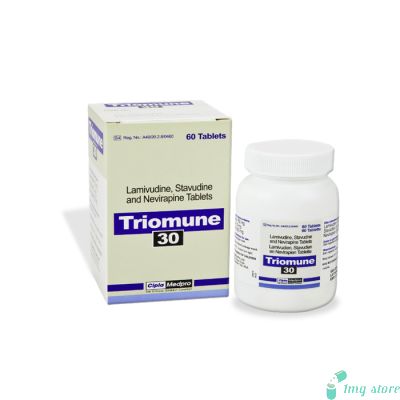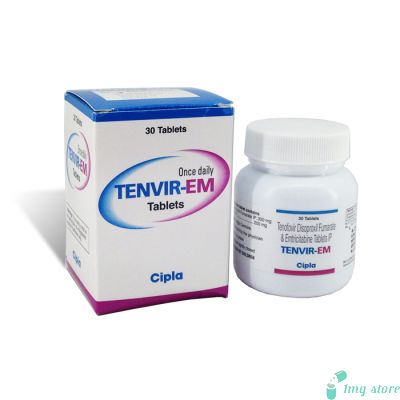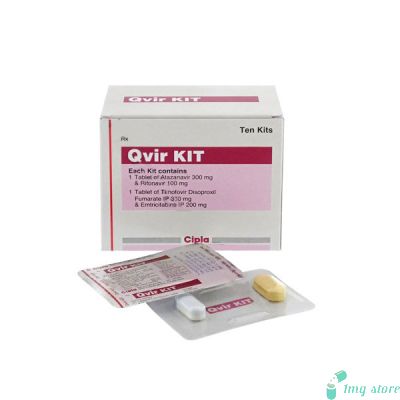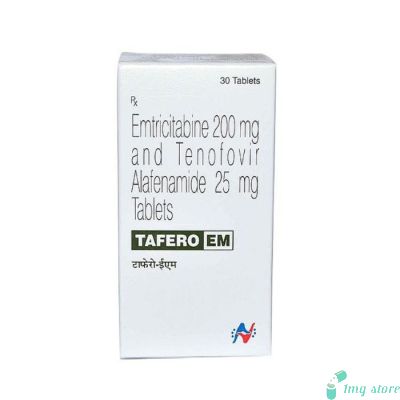Stavir Capsule (Stavudine)
Stavudine, commonly known by its brand name Zerit, is a nucleoside reverse transcriptase inhibitor (NRTI) used in the treatment of human immunodeficiency virus (HIV) infection. A generic version of this medication is available in the form of capsules under the name Stavudine Capsule (Stavir).
Generic Stavudine Capsule (Stavir) For HIV infection
Stavudine, commonly known by its brand name Zerit and Stavir, is a nucleoside reverse transcriptase inhibitor (NRTI) used in the treatment of human immunodeficiency virus (HIV) infection. The generic version of this medication is available in the form of capsules under the name Stavudine Capsule (Stavir). Stavudine belongs to a class of antiretroviral drugs that work by interfering with the replication process of the virus, thereby reducing the viral load in the body and slowing down the progression of HIV/AIDS. In this article, we will delve into the dosage information, uses, and other important details related to Stavudine Capsule (Stavir).
Dosage Information
Stavudine Capsule (Stavir) is available in various strengths, typically ranging from 15 mg to 40 mg. The dosage prescribed to patients depends on several factors, including their age, weight, medical history, and the severity of their HIV infection. It is crucial to follow the doctor's instructions carefully when taking Stavudine Capsule to ensure optimal treatment outcomes. The usual adult dosage of Stavudine Capsule for HIV infection is around 30 to 40 mg twice daily, with or without food. For pediatric patients, the dosage is determined based on their body weight. It is essential to take the medication at regular intervals and complete the prescribed course, even if the symptoms improve, to prevent the development of drug resistance.
Stavudine Capsule Generic: Stavudine Capsule is the generic version of the medication Zerit. It is an antiretroviral, Life-Saving Drug used in the treatment of HIV-1 infection. As a generic medication, it offers a more affordable alternative to the brand-name version while providing similar therapeutic effects.
Stavudine Capsule Brand Name (Zerit): Zerit is the brand name under which Stavudine Capsule is commonly marketed. It has been one of the significant antiretroviral drugs used in HIV treatment. However, due to the availability of newer and more effective medications, its use as a first-line treatment has diminished.
Stavudine Capsule Manufacturers: Stavudine Capsule is manufactured by Cipla Pharma Ltd.
Buy Stavudine Capsule: 1mgstore.com is a trusted online platform where individuals can purchase Stavudine Capsule and other medications. Customers should verify the legitimacy of the website and its certifications to ensure the authenticity and safety of the products sold.
Some of the important Safety Advice to be taken while using Stavir Capsule (Stavudine)
- Medical History and Allergies: Before starting Stavudine Capsule, patients should inform their healthcare providers about their complete medical history, including any known allergies to medications or other substances. Individuals with a history of hypersensitivity to stavudine or other nucleoside analogs should avoid using this medication.
- Pregnancy and Breastfeeding: Stavudine/Zerit Capsule may pass into breast milk and potentially harm the nursing infant. Pregnant and breastfeeding women should discuss the risks and benefits of the drug with their healthcare providers before initiating treatment. In certain situations, healthcare providers may recommend alternative medications for pregnant or breastfeeding women.
- Renal Impairment: Patients with kidney problems should use Stavudine Capsule with caution, as the drug is primarily eliminated through the kidneys. Dose adjustments may be necessary for individuals with impaired renal function to prevent drug accumulation and potential toxicity.
- Hepatic Impairment: Stavudine Capsule should be used cautiously in individuals with liver disease. Patients with underlying liver dysfunction or hepatitis should be closely monitored while on treatment with this medication.
- Lactic Acidosis and Hepatomegaly: Stavudine, like other NRTIs, has been associated with lactic acidosis and hepatomegaly with steatosis (fatty liver). These serious conditions can be life-threatening and may occur more frequently in women, particularly those who are obese. Patients should promptly report any signs or symptoms of lactic acidosis, such as rapid breathing, muscle pain, weakness, or unexplained fatigue.
- Pancreatitis: Stavudine use has been linked to pancreatitis, a potentially severe inflammation of the pancreas. Patients should be vigilant for symptoms of pancreatitis, such as severe abdominal pain, nausea, and vomiting, and report them immediately to their healthcare providers.
- Immune Reconstitution Inflammatory Syndrome (IRIS): In some HIV-infected individuals with advanced immunosuppression, the initiation of antiretroviral therapy, including Stavudine Capsule, may lead to the development of immune reconstitution inflammatory syndrome. This condition results from the recovering immune system's response to pre-existing infections, leading to worsening of symptoms. Patients should be monitored closely for signs of IRIS, and appropriate management should be provided as needed.
Key Functions Must Be Noticed of Stavudine Capsule (Stavir)
- HIV Treatment: Stavudine Capsule (Stavir) is primarily used in the treatment of HIV-1 infection in adults and children. It is an essential component of combination antiretroviral therapy (cART), where it is combined with other antiretroviral drugs to create a potent treatment regimen. The goal of using Stavudine Capsule in HIV treatment is to suppress the viral load, maintain or improve the patient's immune function, and delay the progression to acquired immunodeficiency syndrome (AIDS).
- Prevention of Mother-to-Child Transmission: Stavudine/Zerit Capsule is also used in the prevention of mother-to-child transmission of HIV during pregnancy, labor, and breastfeeding. Administering the drug to pregnant women with HIV can significantly reduce the risk of transmitting the virus to their infants.
- Post-Exposure Prophylaxis (PEP): Stavudine Capsule may be used in post-exposure prophylaxis for healthcare workers or individuals who have experienced potential exposure to HIV, such as through needle-stick injuries or unprotected sex with an HIV-positive partner. Prompt administration of PEP can reduce the risk of HIV transmission.
- HIV-Associated Neuropathy: Stavudine Capsule has shown efficacy in managing HIV-associated neuropathy, a condition characterized by nerve damage and pain, commonly observed in HIV-infected individuals.
- Research and Clinical Trials: Stavudine Capsule may still be used in research settings and clinical trials, although its use as a primary treatment for HIV has decreased due to newer, more effective antiretroviral drugs with better side effect profiles.
Important Adverse effects of using Stavir Capsule (Stavudine) must be noticed
While Stavudine Capsule is effective in managing HIV-1 infection, it may cause several side effects, ranging from mild to severe. Not everyone will experience these side effects, but being aware of them is crucial for prompt recognition and appropriate management. Common side effects of Stavudine Capsule may include:
- Nausea and Vomiting: Some individuals may experience mild gastrointestinal disturbances, such as nausea and vomiting, especially during the initial stages of treatment.
- Headache: Headache is a common side effect reported by patients on Stavudine Capsule, but it is generally mild and temporary.
- Peripheral Neuropathy: Stavudine has been associated with peripheral neuropathy, a condition characterized by tingling, burning, or numbness in the extremities. Patients should promptly report any neurological symptoms to their healthcare providers.
- Fat Redistribution: Long-term use of Stavudine Capsule may lead to fat redistribution in the body, resulting in increased fat in certain areas (lipohypertrophy) or loss of fat in other areas (lipoatrophy).
- Hyperlipidemia: Stavudine can cause elevations in blood lipid levels, such as cholesterol and triglycerides, which may contribute to cardiovascular risks.
- Hyperglycemia: Some patients may experience elevated blood glucose levels while on Stavudine treatment. Regular monitoring of blood sugar levels is essential for those at risk of diabetes or with pre-existing diabetes.
- Hematologic Effects: Stavudine capsules can cause changes in blood cell counts, including anemia (low red blood cell count) and leukopenia (low white blood cell count).
Answers to Common Inquiries - Stavudine Capsule (Stavir)
Q: Can I take Stavudine Capsule with other medications for my HIV treatment?
A: Stavudine Capsule should be used cautiously with certain medications, such as zidovudine and didanosine, to avoid potential drug interactions. Always inform your healthcare provider about all medications you are taking to ensure safe and effective treatment.
Q: What should I do if I miss a dose of Stavudine Capsule?
A: If you miss a dose, take it as soon as you remember. However, if it is almost time for the next scheduled dose, skip the missed dose and continue with the regular dosing schedule. Do not double the dose to catch up.
Q: Can Stavudine/Zerit Capsule cure HIV/AIDS?
A: Stavudine Capsule is not a cure for HIV/AIDS. It is an antiretroviral drug that helps manage the infection by reducing the viral load and slowing down disease progression. It is essential to continue treatment as prescribed to maintain viral suppression and immune function.
Q: Is it safe to use Stavudine Capsule during pregnancy?
A: Stavudine Capsule use during pregnancy should be discussed with a healthcare provider. While it may be necessary to continue treatment for some pregnant women with HIV, the potential risks and benefits should be carefully evaluated, and alternative options may be considered.
Q: Can Stavudine Capsule cause lipodystrophy?
A: Stavudine Capsule use has been associated with fat redistribution in the body, leading to lipodystrophy. This condition involves changes in fat distribution, such as increased fat in certain areas and fat loss in others. Healthcare providers may consider alternative medications to reduce the risk of lipodystrophy.
Primary Drug Interconnections with Stavir Capsule (Stavudine)
- Zidovudine (AZT): Stavudine should not be co-administered with zidovudine, another NRTI, due to an increased risk of mitochondrial toxicity, which can lead to severe adverse effects.
- Ribavirin: The concurrent use of a Stavudine Capsule (Stavir) and ribavirin, a medication used to treat hepatitis C, may increase the risk of lactic acidosis.
- Didanosine: Co-administration of Stavudine/Zerit with didanosine, another NRTI, may result in an increased risk of pancreatitis and peripheral neuropathy. This combination should be avoided or used with caution.
- Tenofovir: Concurrent use of a Stavudine Capsule and tenofovir, another antiretroviral drug, may increase the risk of kidney-related adverse effects. Healthcare providers should carefully assess the potential risks and benefits of this combination.
- Other Medications: Stavudine Capsule may interact with certain medications used for the treatment of cancer, gout, and infections. Patients should inform their healthcare providers about all medications they are taking to prevent drug interactions.
| Manufacturer | : | Cipla Pharma, India |
| Equivalent Brand | : | Zerit |
| Generic Search | : | Stavudine |

















